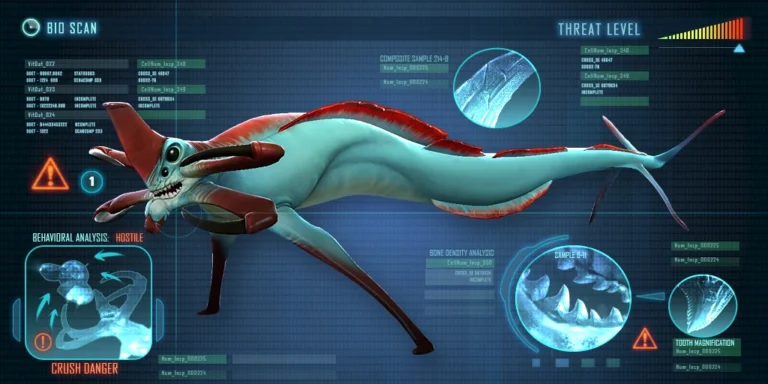Introduction
In today’s rapidly advancing technological world, preserving the past has become a more pressing challenge than ever before. This rings especially true for video games, which, as an entertainment medium, have evolved at lightning speed. Imagine a world where beloved classics like Super Mario 64 or Final Fantasy VII simply vanish into obscurity. Enter Gameverse Archives, a new beacon of hope for preserving video game history.
Understanding Gameverse Archives: A New Era of Game Preservation
But what exactly is Gameverse Archives? Why should you, as a gamer or developer, care about this initiative? Let’s dive deeper into the Gameverse, exploring its significance in preserving the rich tapestry of video games for future generations.
What is the Gameverse Archive and Why it Matters?
The Gameverse Archives are not just a digital collection of old games—they are a time capsule, preserving the very heart and soul of the gaming world. For years, many classic and rare games were lost, overlooked, or forgotten due to hardware limitations, aging technology, and the rapid pace of game development.
The archives allow us to revisit these lost treasures, ensuring that the legacy of gaming remains accessible, whether you are a seasoned player or a curious newcomer. But why does this matter? Simple: preserving gaming history ensures future generations can learn from the past and appreciate how far the medium has come.
Related Article: TheGame Archives: Shaping the Future of Gaming
The Importance of Preserving Gaming History
Every game that has ever been released carries a piece of history, from the technical breakthroughs to the cultural shifts they influenced. By preserving games, we maintain the memories of entire generations of gamers who grew up with these virtual worlds. Gameverse Archives acts as the caretaker of this heritage, ensuring that important titles don’t disappear into oblivion.
The Purpose and Value of Gameverse Archives
Now, why is Gameverse Archives so valuable? Beyond simply storing games, the archive provides an essential service: preserving the cultural and historical significance of each title. The archive isn’t just a dusty old library; it’s a living, breathing testament to the power of gaming as an art form.
Why Video Game Archives Matter
Video game archives are essential for maintaining a connection to the past and understanding the evolution of gaming. By preserving games, we ensure that these pieces of interactive art remain accessible for future generations, offering insights into both cultural history and technological development.
Digital Preservation and Cultural Significance
Think about it—without digital preservation, many early video games would simply vanish. Early game consoles like the Atari 2600 or NES represent pivotal moments in gaming history, yet without preservation efforts, these games might have been lost forever. By ensuring games are preserved in their original form, we honor their place in gaming culture.
Moreover, many games carry cultural significance that can’t be measured by just sales or technical achievement. They represent the stories, communities, and innovations of their time.
How Game Preservation Impacts Future Gamers and Developers
Imagine a game developer in the future who is looking to create a new title. Without the history of gaming to inspire and inform them, the industry would risk repeating past mistakes or missing out on valuable lessons. Preserving old games helps developers innovate while respecting the roots of the medium.
Furthermore, future gamers will benefit from a vast library of games to explore, learn from, and enjoy—just as we do when we discover retro titles from the ’80s and ’90s.
The Role of Gameverse in the Larger Gaming Ecosystem
Gameverse plays a pivotal role in the broader gaming landscape by ensuring that both past and present games coexist. It fosters an environment where players can celebrate gaming’s history, offering a space to explore classic titles while remaining connected to modern gaming trends.
How Gameverse Fits into the Broader Gaming World
You might wonder, how does Gameverse fit into the sprawling world of modern gaming? Well, think of Gameverse Archives as an essential part of the larger ecosystem. It’s not about competing with the latest blockbuster games, but about making sure those older titles still have a place in the conversation.
Gameverse serves as a bridge—connecting the past with the present and future of gaming. In this way, it doesn’t just preserve games; it creates a community where players can engage with the entirety of gaming’s legacy, whether it’s discovering a forgotten classic or revisiting a nostalgic favorite.
The Relationship Between Archives, Emulators, and Game Preservation
Emulators play a crucial role in the preservation process. These programs allow modern systems to run older games, which might otherwise be impossible due to outdated hardware. Gameverse uses emulation to ensure that the games in its archive remain accessible to future generations.
Navigating the Gameverse Archives
Navigating Gameverse Archives is a straightforward and intuitive experience, designed to make discovering gaming history easy for everyone. With clear categories and search functions, users can quickly find the games, genres, or platforms they’re interested in exploring.
How to Access Gameverse Archives
Now that we understand its importance, how can you dive into Gameverse Archives? Fortunately, accessing the archives is simple and user-friendly. Here’s a step-by-step guide for new users to get started:
- Visit the Gameverse website – Begin by going to the official Gameverse platform.
- Create an account – Sign up to get full access to the archives.
- Explore the library – Browse through categories, or use search filters to find the games you’re interested in.
- Download or Play – Choose whether you’d like to download the game or play it directly through the emulator.
Features and Tools to Enhance the User Experience
Gameverse is more than just a repository of games. Whether you’re a nostalgic gamer looking to revisit childhood classics or a curious new player eager to explore the past, Gameverse offers tools that make the journey enjoyable and seamless.
Which Games Are Included in Gameverse Archives?
Gameverse Archives offers a diverse selection of games, ranging from well-known classics to hidden gems. The collection spans across various platforms and genres, ensuring that both casual gamers and hardcore enthusiasts can find something to enjoy and explore.
The Variety of Games Found Within the Archives
From iconic classics to obscure, cult-favorite titles, the Gameverse Archives contains a treasure trove of games from all eras of gaming history. You’ll find everything from arcade legends to early PC games, ensuring that no matter your interest, there’s something for everyone.
Focus on Classic, Rare, and Cult-Favorite Titles
Some games hold a special place in the hearts of gamers for reasons beyond their mechanics or graphics. These cult classics often have a dedicated fanbase, and Gameverse focuses on preserving these unique gems. Whether it’s the quirky charm of an indie game or the innovative gameplay of an early console title, Gameverse ensures these gems live on.
Tech Behind Gameverse Archives
The technology powering Gameverse Archives is built to ensure both preservation and accessibility. With a robust blend of cloud storage, powerful server networks, and advanced emulation tools, Gameverse maintains the integrity of every game, providing users with seamless access to the classics.
The Technology Driving the Archives
The preservation of video games is not only about storing them but also about making them accessible and playable on modern devices. Gameverse relies on advanced infrastructure to host and catalog thousands of games.
Tools and Platforms Used to Store and Catalog Games
Gameverse uses specialized tools to store, categorize, and maintain each game’s integrity. Whether it’s preserving a game’s original graphics, audio, or programming code, these tools ensure that future players will experience the games exactly as they were intended.
Emulators and Their Role in the Preservation Process
Emulators are at the heart of Gameverse Archives. These programs simulate older systems, allowing modern hardware to run classic games. However, emulators come with their own set of challenges, including compatibility issues and the need for constant updates.
Benefits of the Gameverse Archives
The Gameverse Archives offer a wealth of benefits, from preserving gaming history to providing educational opportunities. By safeguarding these games, the archive ensures that future generations can experience and learn from the technological advancements and cultural shifts that shaped the gaming industry.
Cultural and Historical Significance of Game Preservation
By storing and providing access to old games, Gameverse allows gamers, developers, and historians alike to reflect on the evolution of gaming culture and technology.
The Educational Role of the Gameverse Archives
Gameverse isn’t just a resource for entertainment; it also serves an educational purpose. The archives provide valuable insights into the history of game design, storytelling techniques, and the technological innovations that have shaped the gaming industry. For educators and students alike, this makes Gameverse a vital learning tool.
Why Gamers Should Care About Digital Archives
For gamers, digital archives like Gameverse represent more than just a repository of old games—they offer opportunities for discovery. Many of us love uncovering hidden gems or rediscovering games we loved but forgot about. Gameverse allows gamers to interact with the past in a way that feels fresh and relevant.
The Future of Digital Game Archives
The future of digital game archives is set to be shaped by cutting-edge technologies, revolutionizing the way games are preserved. As tools like AI and machine learning advance, the efficiency and accuracy of archiving processes will improve, ensuring that even more games are captured and preserved for future generations.
Innovations Shaping the Future of Game Preservation
The world of game preservation is rapidly evolving. With new advancements in cloud computing, AI, and machine learning, the future of Gameverse Archives looks incredibly promising. Innovations like AI-powered game recognition software will allow the archives to automatically tag and categorize games, making the entire process more efficient and accurate.
What’s Next for Gameverse Archives?
As technology continues to improve, so too will the scope and reach of the Gameverse Archives. Future expansions may include better global accessibility, cross-platform play, and even deeper integrations with modern gaming systems.
Final Thoughts
In a world where technology moves at an ever-accelerating pace, Gameverse Archives stands as a necessary and vital effort to preserve the legacy of gaming. By ensuring that past games are never lost, it allows future generations to engage with the rich history of video games. As gamers and developers, we have a collective responsibility to support and engage with these archives, ensuring that our gaming culture is preserved for years to come.
FAQs:
Q. What is Gameverse Archives?
Gameverse Archives is a digital collection designed to preserve and catalog classic, rare, and historical video games, ensuring they remain accessible to future generations.
Q. How can I access the Gameverse Archives?
To access the Gameverse Archives, simply visit their website, create an account, and start exploring their extensive library of preserved games.
Q. Are all games available on Gameverse Archives?
While Gameverse Archives aims to include a wide variety of titles, it primarily focuses on classic, rare, and cult-favorite games that are often hard to find elsewhere.
Q. How does Gameverse preserve old games?
Gameverse uses a combination of cloud storage, emulation technology, and advanced infrastructure to preserve games and make them playable on modern systems.
Q. Why is game preservation important?
Preserving video games ensures that the cultural and historical significance of the medium is maintained, allowing future generations to experience the games that helped shape the industry.








